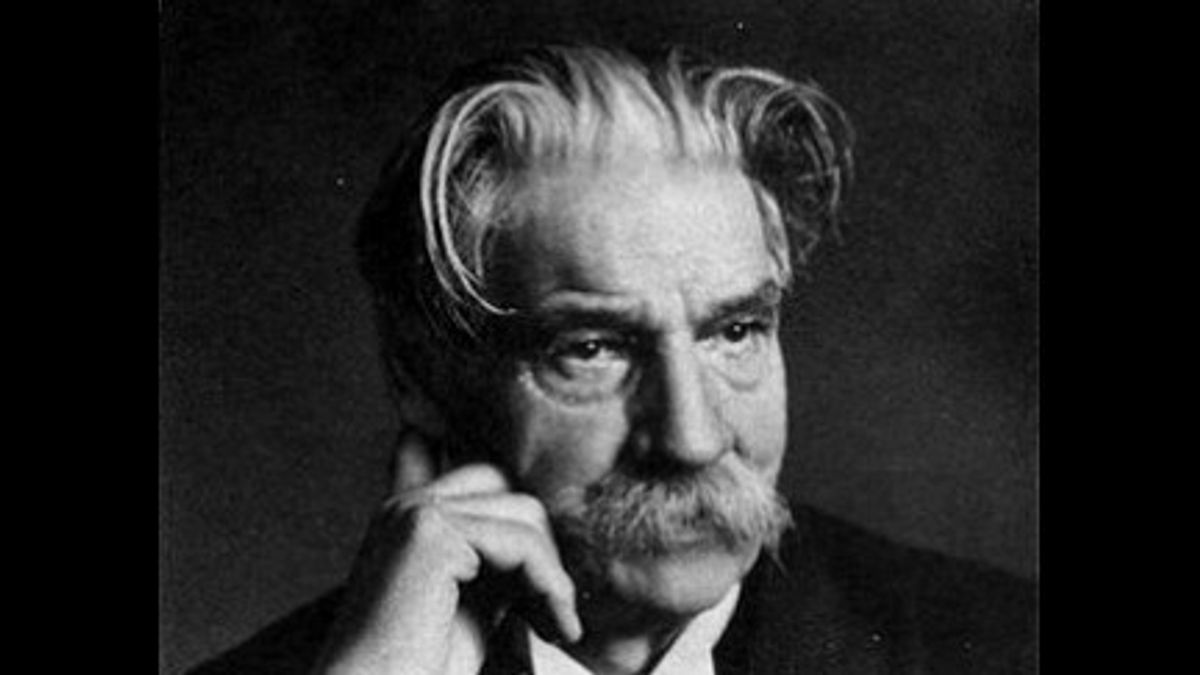JAKARTA - Today is January 14, more than a century ago or in 1875, the theologian, doctor and philosopher Albert Schweitzer was born. He is best known for being a missionary who devoted himself to the health of many people. In addition, he became a missionary who was passionate about anti-nuclear weapons until he was awarded the Nobel Peace Prize. How is his life story?
Little Schweitzer grew up in an Alsatian family that for generations served religion, music and education. Being a son and grandson of a pastor, Schweitzer studied theology and philosophy at the universities of Strasbourg, Paris and Berlin.
Citing History, Thursday, January 14, 2021, after becoming a pastor, Schweitzer entered medical school in 1905 with the dream of becoming a missionary in Africa. Schweitzer is also a well-known artist who plays a professional role to earn money for his education. By the time he received his MD in 1913, the high achiever Schweitzer had published several books, including The Quest for the Historical Jesus and a book about composer Johann Sebastian Bach.
After earning a medical degree, Schweitzer and his wife, Helene Bresslau, moved to French Equatorial Africa, where he established a hospital in Lambarene, now Gabon. When World War I broke out, German-born Schweitzer was sent to a camp in France as a prisoner of war. He was then released in 1918 and returned to Lambarene in 1924.
With funds raised from royalties and performing fees as a musician as well as donations from around the world, he expanded the hospital to seventy buildings. In the early 1960s, the hospital could treat more than 500 patients at a time.
At Lambarene, Schweitzer has many roles. He is a doctor and surgeon in a hospital, pastor of a congregation, village administrator, superintendent of buildings and yards, author of scientific books, contemporary historical commentator, musician, and is also the host of countless visitors. The accolades he received were numerous, including the Goethe Prize of Frankfurt and honorary doctorates from many universities which emphasized his achievements one or another.
In 1952, he was awarded the Nobel Peace Prize. However, the award was actually given to him on December 10, 1953. With a prize money of 33,000 US dollars, he started leprosy treatment in Lambarene.
Over the next three decades, Schweitzer visited Europe frequently to lecture on culture and ethics. His philosophy revolves around the concept of what he calls "reverence for life" or the idea that all life is to be respected and loved, therefore man must enter into a personal and spiritual relationship with the universe and all of His creation. Respect for this life, according to Schweitzer, will naturally lead humans to live a life of service to others.
Schweitzer has received widespread praise for practicing his uplifting theory in his African hospitals, where he treated many patients with leprosy and the dreaded African sleeping sickness. From the early 1950s until before his death, Schweitzer spoke and wrote tirelessly about his opposition to nuclear testing and nuclear weapons. He added his voice to fellow Nobel laureates Albert Einstein and Bertrand Russell.
Twilight on SchweitzerOn August 28, 1965, Schweitzer fell ill from exhaustion. His condition worsened over the next few days and on September 4, at 11:30 p.m., he passed away. His death was kept secret for the entire night, so that his daughter Rhena could send a telegram to her relatives.
Schweitzer was buried on September 5, 1965 on the banks of the Ogooue River, next to the ashes of his late wife, Helen. Fifty years later, the hospital's Medical Research Unit is one of Africa's leading scientific institutions fighting the spread of malaria.
This unit provides primary healthcare services for the City of Lambaréné and surrounding areas in eastern Gabon. Each year it receives more than 35,000 outpatient visits. Surgeons perform more than 2,000 operations every year, and hospitals have the continent's lowest death rate for treating children with severe malaria.
"With a few reasons and a lot of heart, a person can change things, or move mountains," Schweizer said one day.
Coupled with his extraordinary talent, work ethic, love of other people, and devotion to his cause, it may come as no surprise that Schweizer's legacy in Lambarene blossomed into success.
The English, Chinese, Japanese, Arabic, and French versions are automatically generated by the AI. So there may still be inaccuracies in translating, please always see Indonesian as our main language. (system supported by DigitalSiber.id)













